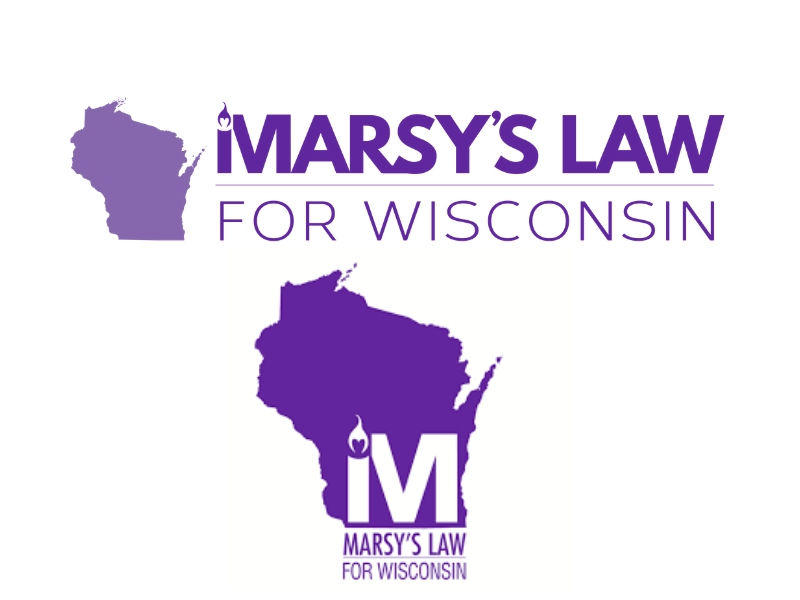Explained: Marsy’s Law
April 2, 2020
Marsy’s law will hit Wisconsin ballots April 7, with supporters looking to establish a state-by-state constitutional amendment for securing rights for crime victims. This campaign, led by California billionaire Henry Nicholas III, has also been followed by critics, labeling this proposed amendment as a short-cut through the justice system, and an avenue for police corruption and concealed evidence.
Nicholas proposed to change state constitutions across the nation when a family member was murdered. Nicholas’s sister and University of California–Santa Barbara student Marsalee (Marsy) Nicholas was shot and killed by her ex-boyfriend in 1983. According to the “Marsy’s Law” website, when Mrs. Nicholas was confronted by her daughter’s killer while waiting in the check-out line; the family was offered no prior information regarding the release of their daughter’s murderer.
This amendment “seeks to give crime victims meaningful and enforceable constitutional rights equal to the victims of the accused.” With this law, victims have the right to be treated with dignity and respect through the entirety of the criminal justice proceedings; the choice to have their rights read to them after police involvement with a crime, similar to Miranda rights; to be notified of specific public proceedings throughout the criminal justice process and to be present and heard during these proceedings, similar to how criminals are offered an allotted time in order to have their voices heard; and the choice to be notified when and if the individual who committed a crime against them or a family member is released back into society.
The campaign argues for trauma induced individuals to be cared for and informed. In 2015, Christian Traub from Madison, WI was attacked by her boyfriend in the street. Traub recalled being asked overwhelming questions regarding her attack hours after it happened, demonstrating on dummies where her boyfriend hit and strangled her and six months spent in court hearings. “Wisconsin already has many of the rights in place — such as the right to have standing in court, or the right to receive restitution payments before the government takes any money from the accused — but at the statutory level,” Traub explained in her guest column for the Wisconsin State Journal. “So, if my rights conflicted with the rights of the man who destroyed my life as I knew it, a judge would have no choice but to follow the law and allow his rights to trump mine.”
Although, there has been criticism surrounding Marsy’s law. The ACLU stated, “Marsy’s Law would remove that presumption of innocence – tipping the scales of justice against the accused. For example, Marsy’s Law would allow a person accusing another person of a crime to withhold evidence.”
While this law may benefit victims, there are some loopholes in the law. On Sept. 16, 2018 a South Dakota highway patrol officer engaged in a high-speed pursuit involving 21-year-old Kuong Gatluak, resulting in the officer shooting Gatluak in the left arm after attacking the officer with a bottle once he was forced to pulled over.
Two months later, another South Dakota officer was involved in a pursuit involving a shootout. Both officers utilized Marsy’s Law in order to evoke personal protections, including preventing their names from being released to the public. North Dakota saw a similar trend with at least eight officers involved in a shooting utilizing victim’s rights in order to protect their reputations.
States like Illinois, North Dakota, South Dakota, Ohio, Florida, Georgia, Kentucky, Nevada, North Carolina and Oklahoma have all established this law within their state’s constitutions. Although, for states like Montana, whose name was added then quickly removed from the list in 2017, struck down the law in a state senate 5-2 proceeding, stating that the changes the law made “should have been submitted to voters separately rather than as an all-encompassing initiative.”
Iowa’s Coalition Against Sexual Assault and Domestic Violence also opposes this movement, stating in an article written for the ACLU explaining how they, “remain unwavering in our support for victims, yet we oppose Marsy’s Law.”
Sheboygan Criminal Defense attorney Casey Hoff said in his opinion piece for the Sheboygan Press to, “not be misled by the ads running on television in support of Marsy’s Law.” Hoff said, “adopting Marsy’s Law and amending Wisconsin’s Constitution would pose enormous threats to the rights of every person accused of a crime in this state and chip away at the fundamental principles of due process and the presumption of innocence.”
On Feb. 7 of this year, Madison Judge Frank Remington denied an attempt by challengers of the law to have it removed from the April 7 ballot. If passed, Wisconsin crime victim laws would see a duplication in rights.






